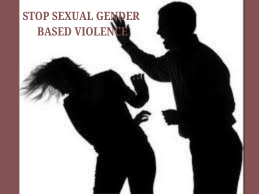Stakeholders at a two-day workshop on Sexual and Gender-Based Violence (SGBV) in Enugu have urged immediate action to strengthen accountability, promote justice, and empower communities to combat the pervasive issue in the South-East region. Organized by Women Aid Collective (WACOL) in collaboration with WARDC and Above Whispers, with support from the MacArthur Foundation, the event drew participants from civil society organizations (CSOs), community-based organizations (CBOs), and media professionals.
The workshop, held from December 4 to 5, emphasized the need for transparent and survivor-friendly judicial processes. Participants called for timely prosecution of SGBV cases and demanded that corruption within law enforcement and judicial systems be rooted out. They also urged government agencies to allocate adequate resources for survivor support and hold officials accountable for negligence or malpractice.
In a communiqué issued at the event’s conclusion, participants outlined resolutions to enhance the fight against SGBV. These include advocating for the full implementation of the Violence Against Persons (Prohibition) Act, the Child’s Right Act, and relevant state laws. The communiqué also emphasized the importance of corruption-free systems, monitoring misconduct within the c and strengthening survivor support services through partnerships.
“We resolve to enhance survivor support by providing accessible and corruption-free services such as legal aid, psychosocial counseling, and safe shelters,” the communiqué stated. It further called for community leaders and service providers to be equipped with tools to address corruption in SGBV cases and support survivors effectively.
The workshop highlighted training and retraining of law enforcement agents and judicial officers on corruption-related issues in SGBV cases as a critical need. Professor Joy Ezeilo, SAN, the Executive Director of WACOL, explained that the training aimed to equip stakeholders with skills to identify and challenge corrupt practices. “This workshop empowers you to recognize and address corruption, contributing to a more just society,” she said.
Ezeilo cited instances of corruption that hinder justice for survivors, including demands for bribes by police and judicial officers. “We have seen cases where officers ask for money from both suspects and victims, leading to induced settlements out of court,” she said. She stressed the importance of rejecting such practices and ensuring that felony cases, including sexual violence, are prosecuted to uphold the rule of law.
Participants also urged donor organizations to fund initiatives addressing corruption in SGBV cases. They emphasized capacity-building programs, survivor support, and advocacy efforts as key areas requiring sustained investment. The workshop’s survivor-centered approach underscored the dignity, privacy, and safety of survivors while advocating systemic reforms.
The workshop’s resolutions represent a united call for action to eradicate corruption in SGBV cases, ensure justice for survivors, and create an accountable system that prioritizes human rights and safety.





